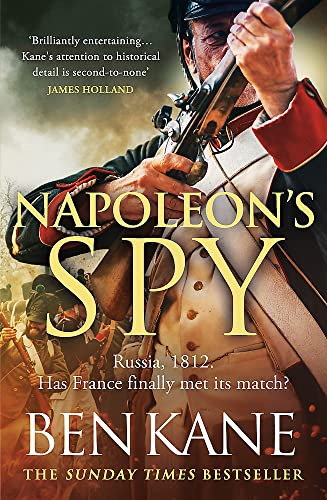Napoleon’s Spy
Having produced 13 books set in classical times and a further trilogy set in the 12th century, the prolific Kane here turns his attention to the comparatively modern year of 1812 and the epic canvas of Napoleon’s Russian campaign. Our protagonist, a reluctant spy against Napoleon, is Matthieu Carrey, a louche gambler, half-French and half English. He starts the book seeking relief from his debts by smuggling French prisoners back home across the channel, but later finds himself stranded in Paris. Debts again force his hand, so a British agent makes him enrol in La Grande Armée on the understanding that he will pass information to the Russians. This rather passive character arc is presented as a moral progression, though I was not entirely convinced that Matthieu’s flexible conscience would in practice have been sufficiently stiffened. Also, the strategic purpose of his espionage is never fully explained.
The bulk of the book is a recreation of the incompetent leadership and intense suffering that, for the French, are hallmarks of the 1812 campaign. Matthieu’s pride involves him in a series of duels with a rival officer (named Daniel Féraud in tribute to Joseph Conrad’s famous story ‘The Duel’, filmed as The Duellists). By not making Matthieu a trained soldier, Kane forgoes the opportunity to describe sword fights, something I have enjoyed from his previous writing. Instead they duel with pistols, sometimes absurdly close to the Russian Cossacks.
I was a little disappointed that this novel finishes with the crossing of the Berezina, whereas in fact the diminishing rump of Napoleon’s army, reduced to starving scarecrows, still had miles of frozen ground to cover before reaching safety. However, putting us ‘on the ground’ amidst this exceptionally lethal campaign, Kane has delivered a book replete with grim fascination.










